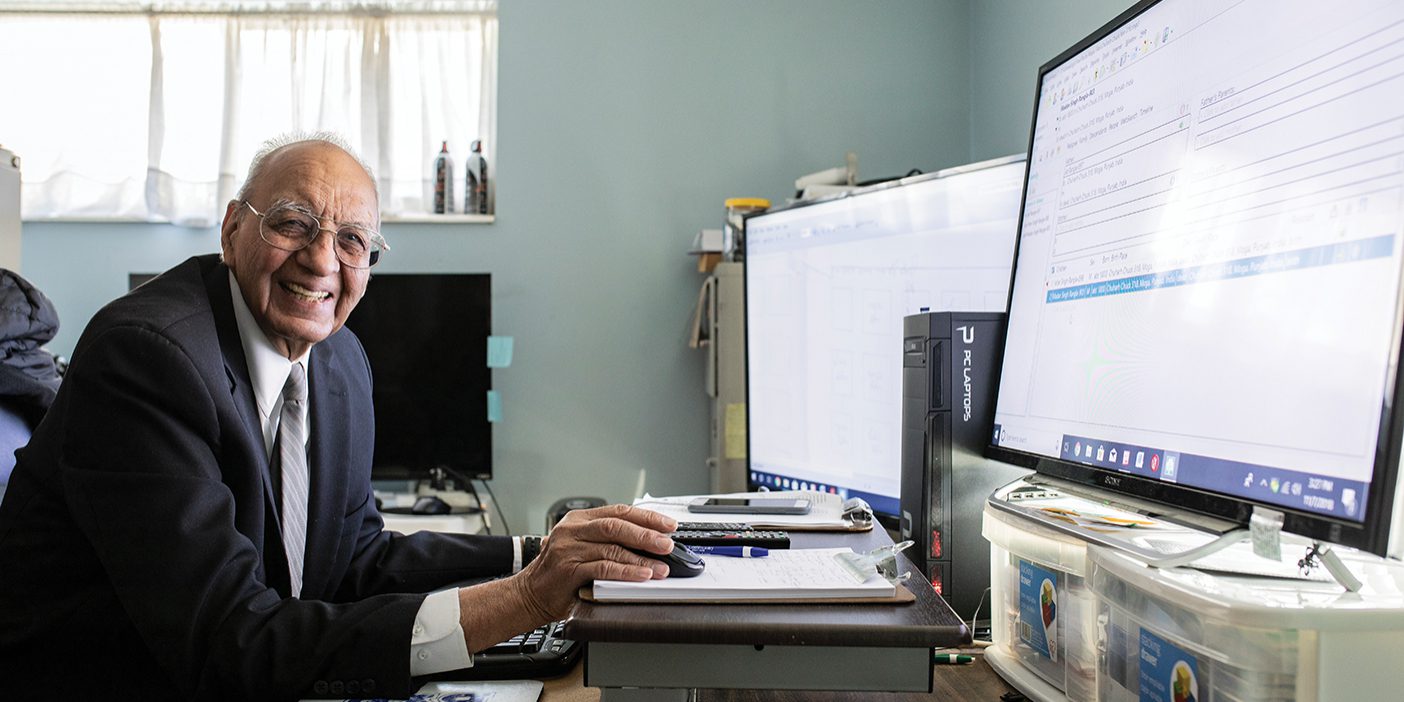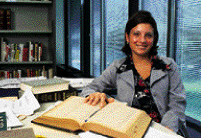LATTER-DAY Saint temples have several purposes. They are dedicated homes to deity. Temples provide us with a vision of our eternal potential and with instruction as to how we can achieve the goals God has set for us. Temples link us through ordinances and covenants to the grace and power of Christ’s Atonement.
Now, consider how BYU might be a temple of learning. Is it a home for deity? Does it have a responsibility to help young people understand their potential in both mortality and eternity? Does it have a sacred as well as a secular responsibility to help you reach your ultimate destiny? Is there power in teaching you how to learn and providing you with knowledge concerning heaven and earth? The answer to each question is yes! The Holy Spirit should be present in every classroom and pervade the university. His presence softens and enhances relationships between faculty and students and affects student-to-student relationships as well. His presence also enhances the learning process. The seeking of knowledge—both temporal and spiritual—is a sacred responsibility given to every woman and man. The Lord has said:
And I give unto you a commandment that you shall teach one another the doctrine of the kingdom.
Teach ye diligently and my grace shall attend you, that you may be instructed more perfectly in theory, in principle, in doctrine, in the law of the gospel, in all things that pertain unto the kingdom of God.
Of things both in heaven and in the earth, and under the earth; things which have been, things which are, things which must shortly come to pass; things which are at home, things which are abroad; the wars and the perplexities of the nations, and the judgments which are on the land; and a knowledge also of countries and of kingdoms.
That ye may be prepared in all things when I shall send you again to magnify the calling whereunto I have called you, and the mission with which I have commissioned you. [D&C 88:7780]
Each of us has been called by the Lord to a special mission. The more we know about things in heaven and in the earth, the more effective we will be in accomplishing the commission given us. The aims of a BYU education are to increase your intellectual capacities and understandings, to enlarge you spiritually, to build your character, and to help you become lifelong learners and lifetime servants.
One of the most sacred moments I have experienced on this campus illustrates the blessing and power of this university as a temple of learning. Prior to the dedication of the Palmyra New York Temple, First Presidency instructions were for students to gather in local chapels to view the services. After some investigation it was determined that few students would be able to attend because local Saints would fill the chapels. Consequently, I asked President Hinckley if the services could be shown in the Marriott Center. Although there was some concern that it would be difficult to feel the spirit of the services in this large space, permission was granted.
Students with recommends were asked to be in their seats at least 30 minutes before the services began. As I entered this space through one of the tunnels, I immediately noticed the extreme quiet in the room. Almost every student had a set of scriptures, and each was quietly reading or pondering the events of the next two hours. A quiet, reverent attitude prevailed throughout the dedication. Following the dedicatory prayer, 20,000 students stood in this arena and, with white handkerchiefs waving, repeated the Hosanna Shout. It was electric! The sea of handkerchiefs was like fields of grain waving in the wind. I have attended a number of temple dedications, but not one like that.
Following the closing hymn and prayer, the Holy Spirit pervaded every corner of this room. I approached the microphone and excused those in attendance to return to their classes. But no one moved. After minute or two, I returned to the microphone and again invited those in attendance to return to class. Slowly, quietly, people arose and left the building. It was one of the great, spiritual moments of my time at the university. This building literally became an extension of the Palmyra Temple during those two hours.
I now understand better the dream given to Karl G. Maeser in the 1880s during a very difficult financial period for the university. Brother Maeser became so discouraged with the lack of resources for the university that he decided to take a job at the University of Utah. He told his wife and daughter to pack the household goods and prepare to move. This they did, and then they waited two days. On the third day the daughter finally asked when they would leave. Brother Maeser replied: “I have changed my mind. I have had a dream—I have seen Temple Hill [upper campus] filled with buildings—great temples of learning, and I have decided to remain and do my part in contributing to the fulfillment of that dream” (from Brigham Young University: The First One Hundred Years, eds. Ernest L. Wilkinson and Leonard J. Arrington, vol. 3 [Provo: Brigham Young University Press, 1976], p. 3).
Brigham Young University is a great temple of learning. Each building has been dedicated to the Lord as a house of learning. The university will fulfill its destiny. How will you do your part?
Each of us is a temple of God. Our bodies are designed to house the Holy Ghost as well as our own spirit. In scripture, Jesus was the first to speak of the body as a temple. After cleansing the Jerusalem temple, the Jews asked Jesus for a sign of His authority. He said to them, “Destroy this temple, and in three days I will raise it up” (John 2:19). The Jewish questioners thought He was referring to the building, but we know that He was referring to His body.
Writing to the Corinthians, the Apostle Paul described sexual sin as a sin against one’s own body and then used the temple metaphor to indicate the seriousness of such acts. He said:
What? know ye not that your body is the temple of the Holy Ghost which is in you, which ye have of God, and ye are not your own?
For ye are bought with a price: therefore glorify God in your body, and in your spirit, which are God’s. [1 Cor. 6:1920]
If we own anything on this earth, one would expect it to be our body and our spirit. In a sense that is true. We are our own person. But Paul is pointing out that Christ’s Atonement determines what we become. We still have our agency, but He paid for our future possibilities. In that sense He owns us. We still must submit to Him. We still must give ourselves to Him.

What? Know ye not that your body is a temple of the Holy Ghost which is in you which ye have of God, and he are not your own? For ye are bought witha price: therefore glorify God in your body, and in your spirit, which are God’s. [1 Cor. 6:19-20]
Treat your bodies with the utmost care. The world does not understand what we have just discussed. It does not understand the Atonement. It does not appreciate the sacred nature of the body. Not only does the body house the Holy Spirit, but it also contains the sacred power of life. The power to give life is a godly power granted to us for a season. How we protect and use it is of utmost importance to our salvation. When we understand that the body is a temple, we will not deface it by wearing immodest dress or viewing pornographic materials.
May I thank you for the exceptional people you are. An integral part of the life of this university is the presence of the Holy Ghost abiding in you. May we live in a manner that will add to the Spirit in this temple of learning. May each of us be worthy receptacles of the Holy Ghost.
The complete text of this Sept. 10, 2002, devotional address by BYU president Merrill J. Bateman is available at speeches.byu.edu/devo/2002-03/Bateman F02.html.
For regular updates on campus devotional addresses, sign up for MyBYU News, BYU‘s customizable e-mail newsletter at mynews.byu.edu.
WHEN DOUBT AND DISCOURAGEMENT STRIKE
By Jeffrey R. Holland
IN the gospel of Jesus Christ you have help from both sides of the veil, and you must never forget that. When disappointment and discouragement strike—and they will—you remember and never forget that if our eyes could be opened we would see horses and chariots of fire as far as the eye can see riding at reckless speed to come to our protection [see 2 Kgs. 6:16–17]. They will always be there, these armies of heaven, in defense of Abraham’s seed.
—Jeffrey R. Holland, “For Times of Trouble,” Devotional Address, March 18, 1980
Audio, video, and text versions of this address are available for purchase at speeches.byu.edu/Detail.tpl?sku=0455A.










